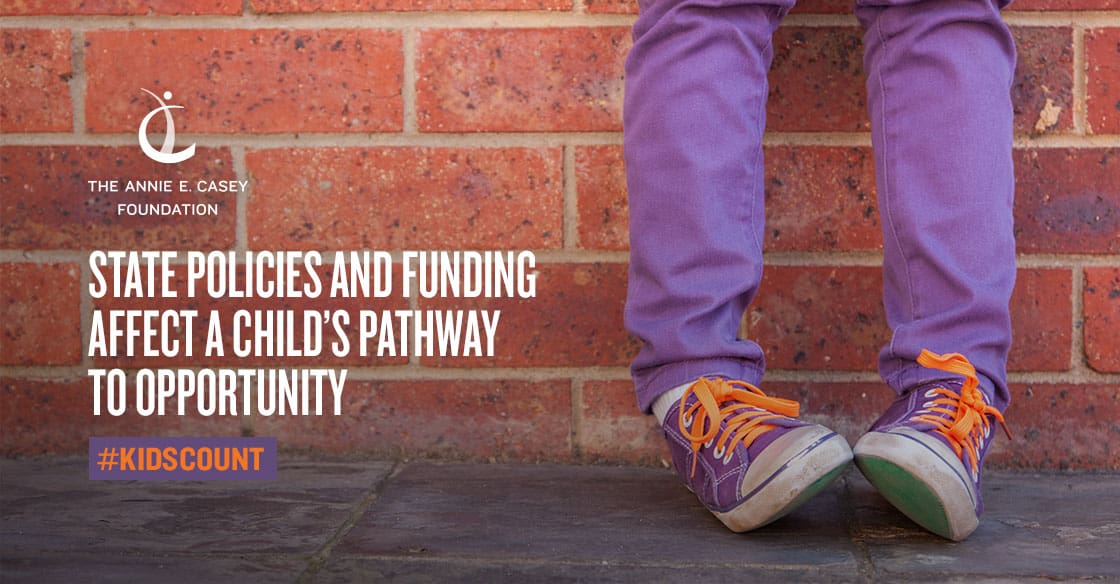CPPP Communications Intern Jovahana Avila contributed to this post.
A new report from the Annie E. Casey foundation shows that Texas is not doing enough to provide for children. The 2018 Kids Count Data Book ranks Texas an embarrassing 43rd in child well-being compared to other states and highlights how a possible 2020 Census undercount could worsen conditions for Texas kids.
According to this year’s report, Texas ranks below average in all four of the report’s domains of child well-being: education, health, economic well-being, and family and community. Although the data show some improvement in areas like child health insurance and on-time graduation rates, Texas ranks as one of the ten worst states for child well-being. An estimated 22 percent (about 1.6 million) of kids in Texas live in poverty, and a majority of Texas kids lack the reading and math skills they need to pursue higher education. Seventy-one percent of Texas fourth-graders scored below proficient in reading levels, and 67 percent of Texas eighth-graders scored below proficient in math levels. For children to reach their full potential, Texas needs policies that support education, health, and economic security.
The full Census takes place just every ten years, and an accurate count of everyone living in Texas is essential. The Census affects the lives of all Texans by determining how much federal funding the state receives, and how many representatives Texas sends to Washington. Communities rely heavily on Census data to make decisions about public safety and neighborhood resources, but advocates fear that the 2020 Census may be in jeopardy.
Certain communities have historically been hard for the Census to count. These “hard-to-count” communities include young children, people of color, people who face language barriers, those without a permanent address, and people who live in rural areas. The 30 percent of young children in Texas (about 582,000 kids) under the age of five who live in hard-to count areas are at increased risk of being missed in the 2020 Census.
A population undercount of even one percent could result in a significant loss of federal funding for Texas – as much as $300 million per year. Texas would need to make up the difference through state taxes in order to fund Medicaid, the Children’s Health Insurance Program, foster/adoption care, and childcare. Additionally, many federally funded programs that have driven youth success are in jeopardy due to a possible undercount. This could leave parents struggling with financial hardships and fewer resources for Texas invest in its children.
When communities are safe and have strong institutions, good schools and quality support services, families and their children can thrive. The Kids Count Data Book shows us where Texas children need support – let’s encourage our leaders to invest in them.
